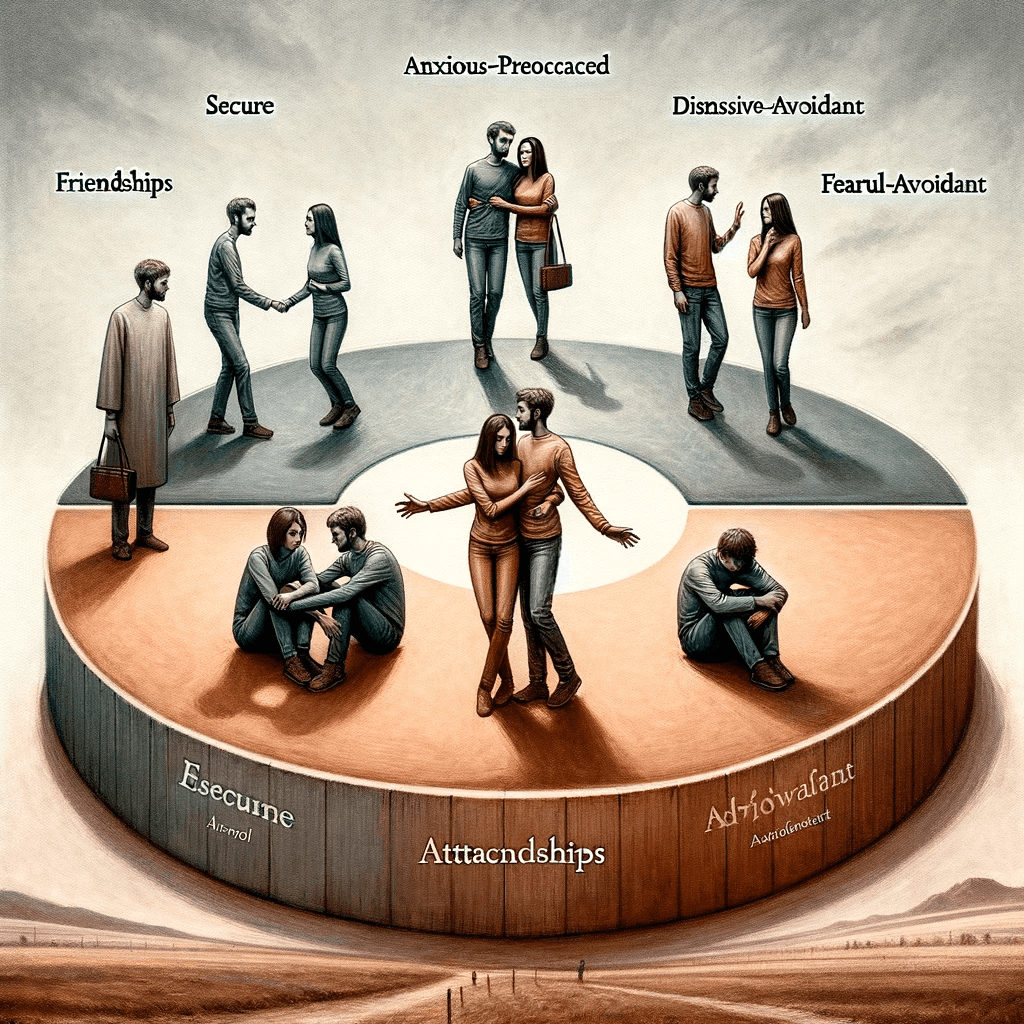Embracing Attachment Styles: The Key to Deepening and Sustaining Friendships in the Modern Age
In recent times, the concept of friendship has gained newfound prominence in our cultural consciousness. This resurgence, potentially influenced by the rekindling of past eras like the 1989 nostalgia wave or the pervasive sense of loneliness in modern society, has brought to light the irreplaceable value of friendships. As we navigate 2023, a year marked by introspection and connection, many seek ways to cultivate more vital, meaningful friendships. This quest for deeper bonds has led us to an unexpected yet invaluable tool: understanding attachment styles in the context of friendships.
The Relevance of Attachment Styles in Friendships
Traditionally, attachment theory, a cornerstone of psychological understanding, has been primarily associated with romantic relationships. However, its application extends far beyond, offering critical insights into the dynamics of our friendships. Attachment styles, shaped during our early interactions with caregivers, influence our approach to various relationships throughout adulthood.
Unveiling Your Attachment Style
To embark on this journey of self-discovery and friendship enhancement, it’s essential first to identify your attachment style. There are four primary styles:
- Secure Attachment: Characterized by confidence in relationships, balancing closeness with independence.
- Anxious Attachment: Marked by a heightened sensitivity to others’ emotions and a tendency for reassurance-seeking.
- Avoidant Attachment: Defined by a strong sense of independence and discomfort with too much closeness.
- Disorganized (Anxious-Avoidant) Attachment: A complex mix of anxiety and avoidance traits, leading to confusion in relationships.
Discovering your attachment style can be enlightening, involving online quizzes, introspective practices like journaling, and discussions with your support system about past relationship patterns.
Impact of Attachment Styles on Friendships
Each attachment style brings its unique strengths and challenges to friendships:
- Anxious Attachment: While individuals with this style are often highly attuned to their friends’ needs, they might also, paradoxically, push friends away by seeking constant reassurance.
- Avoidant Attachment: These individuals usually maintain their independence and don’t overwhelm friends with demands. However, they might struggle to form deep, meaningful connections.
- Secure Attachment: People with a particular style enjoy stable and fulfilling friendships. They can balance closeness with personal space, making their relationships resilient and lasting.

Transforming Friendships Through Understanding Attachment Styles
Realizing and acknowledging your attachment style can be a transformative experience. It empowers you to:
- Relate Better to Others: By understanding your attachment style, you can navigate the space and reassurance needs within your friendships more effectively.
- Handle Conflicts with Grace: Recognizing your attachment tendencies can help you approach conflicts in friendships in a way that prioritizes the relationship’s health.
The Journey Ahead: Embracing Attachment Theory in Friendships
As we progress through 2023 and beyond, the significance of understanding attachment styles in friendships becomes increasingly apparent. It’s a journey that requires patience, self-reflection, and a willingness to adapt. Doing so can enrich our friendships, making them more fulfilling and enduring.
Exploring attachment styles in friendships is more than just a psychological exercise. It’s a path to understanding ourselves and those we care about, enabling us to build the supportive, understanding, and resilient friendships everyone deserves in their lives. In an era where connections are more valued than ever, this understanding could be the key to unlocking the full potential of our friendships.



